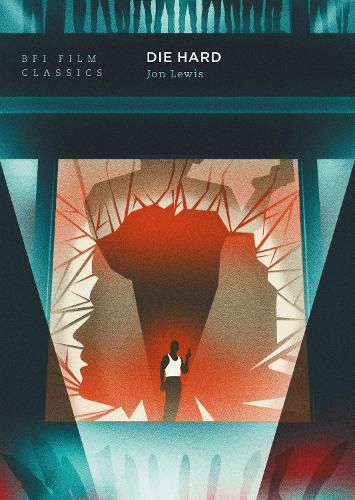Readings Newsletter
Become a Readings Member to make your shopping experience even easier.
Sign in or sign up for free!
You’re not far away from qualifying for FREE standard shipping within Australia
You’ve qualified for FREE standard shipping within Australia
The cart is loading…






Upon its release, John McTiernan's Die Hard (1988) was met with immense commercial and critical success; breaking the $100 million mark at the box office in its first run, and resulting in four Academy Award nominations.
Jon Lewis's study of the action classicclosely examines the film's novel and script adaptation, highlighting the influential role of producer Joel Silver. He delves into Silver's ground-breaking 'whammy theory', which redefined script structure by organizing scripts around timed 'beats' rather than traditional acts or scenes, tracing its impact not only in Die Hard, but also in other iconic franchises like Lethal Weapon, Predator, and The Matrix.
Lewis goes on to consider the film's evocation of post-Vietnam male panic and its connection to the Iron John movement. He highlights Die Hard as a prime example of the 'male rampage film' genre, where white male protagonists express frustration with cultural antagonists like feminism, economic regulation, government bureaucracy, and political corruption. Finally, he reflects on how Die Hard resonated with its 1988 audience, looking for new antagonists in a changing world. The film's anticipation of European radical political groups and later terrorism rooted in North Africa and the Middle East foreshadows the era-defining 'war on terror' that would follow.
$9.00 standard shipping within Australia
FREE standard shipping within Australia for orders over $100.00
Express & International shipping calculated at checkout
Upon its release, John McTiernan's Die Hard (1988) was met with immense commercial and critical success; breaking the $100 million mark at the box office in its first run, and resulting in four Academy Award nominations.
Jon Lewis's study of the action classicclosely examines the film's novel and script adaptation, highlighting the influential role of producer Joel Silver. He delves into Silver's ground-breaking 'whammy theory', which redefined script structure by organizing scripts around timed 'beats' rather than traditional acts or scenes, tracing its impact not only in Die Hard, but also in other iconic franchises like Lethal Weapon, Predator, and The Matrix.
Lewis goes on to consider the film's evocation of post-Vietnam male panic and its connection to the Iron John movement. He highlights Die Hard as a prime example of the 'male rampage film' genre, where white male protagonists express frustration with cultural antagonists like feminism, economic regulation, government bureaucracy, and political corruption. Finally, he reflects on how Die Hard resonated with its 1988 audience, looking for new antagonists in a changing world. The film's anticipation of European radical political groups and later terrorism rooted in North Africa and the Middle East foreshadows the era-defining 'war on terror' that would follow.